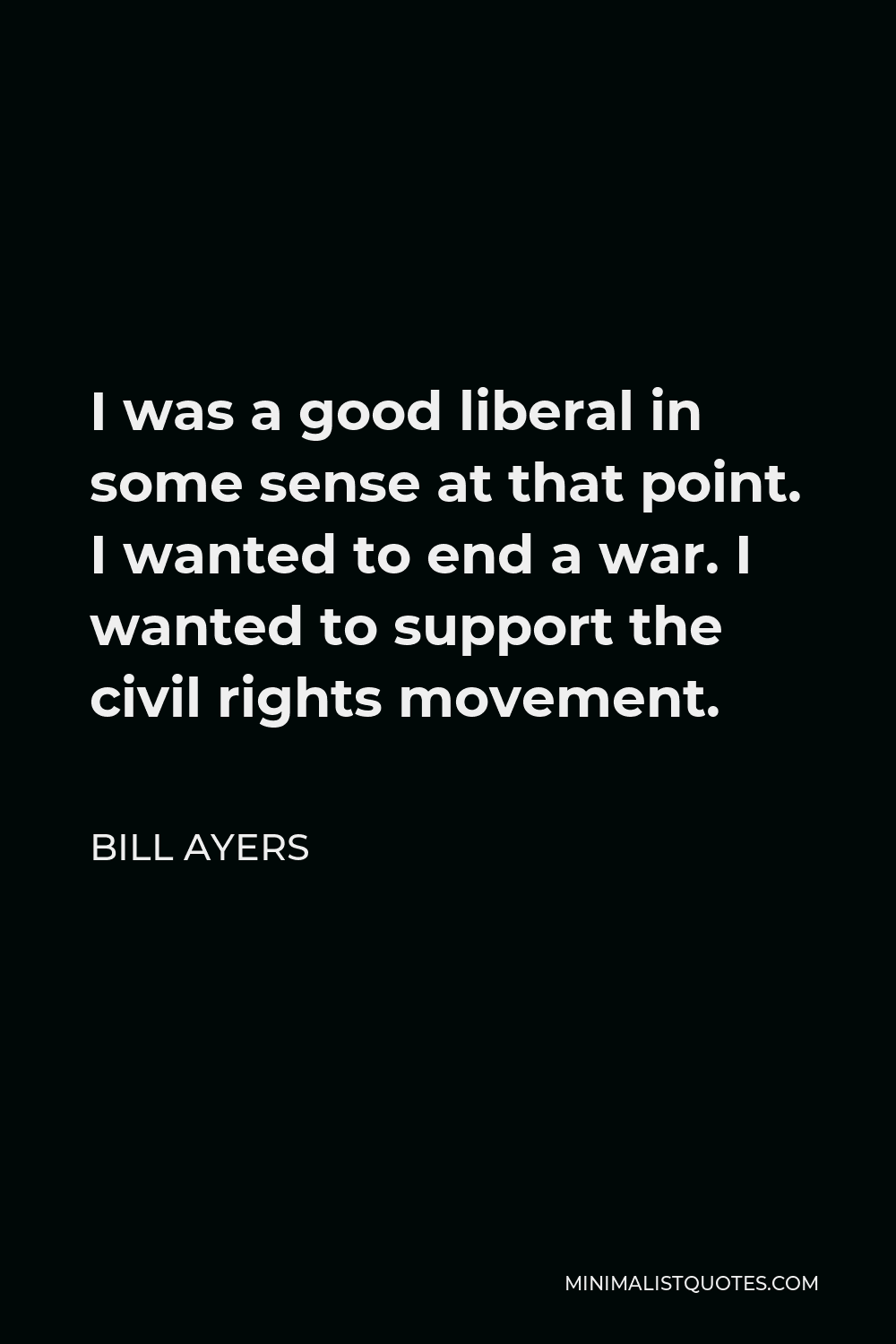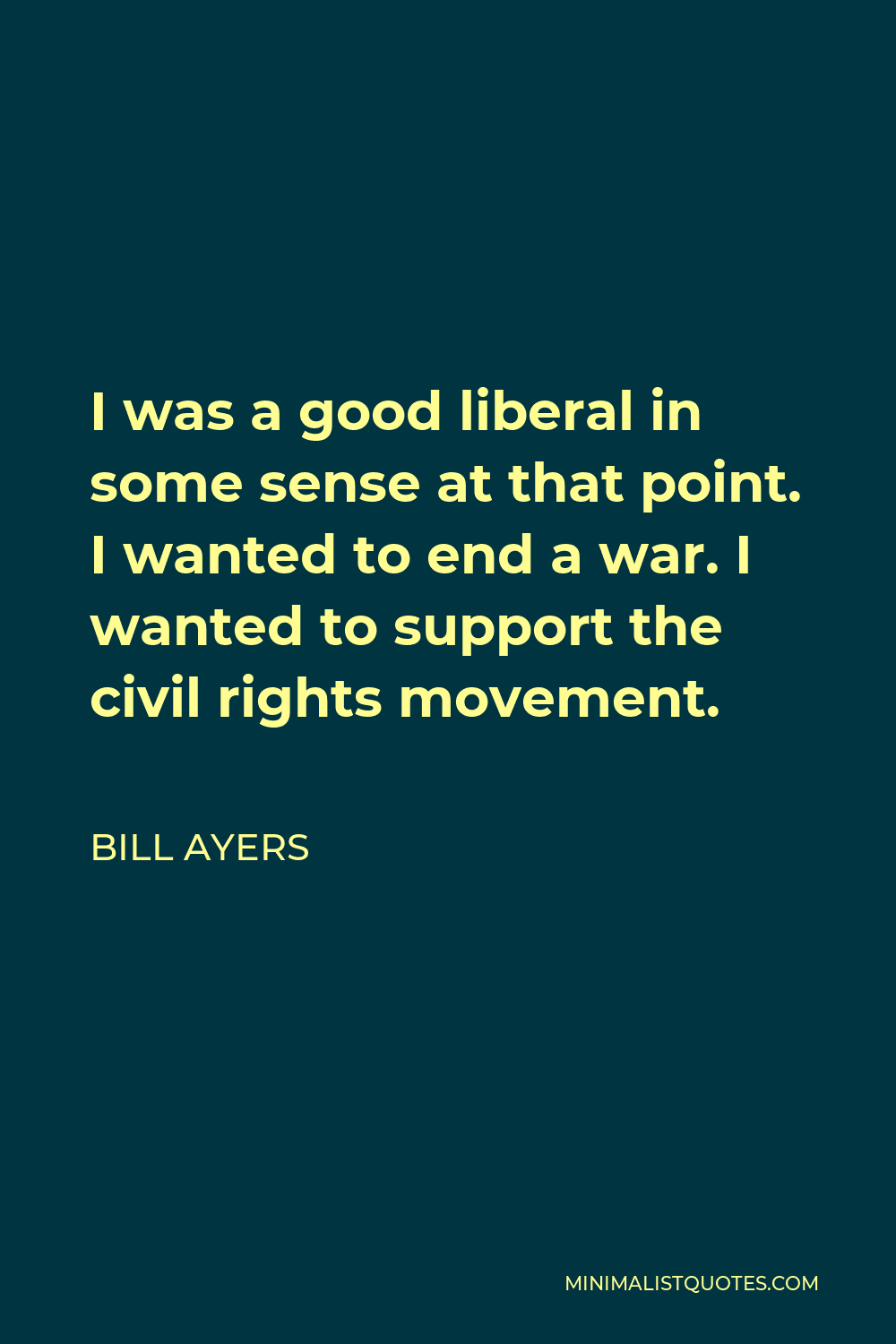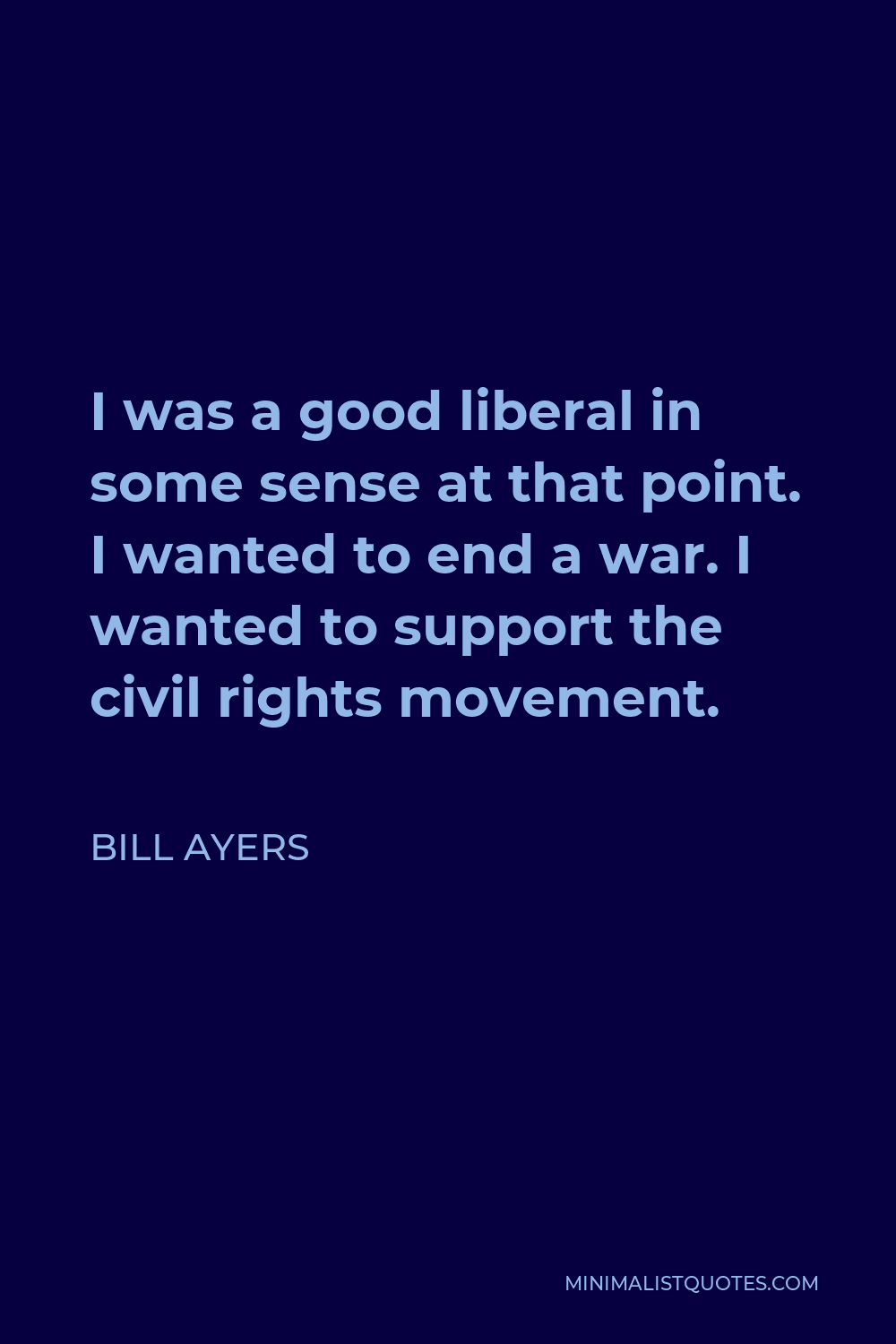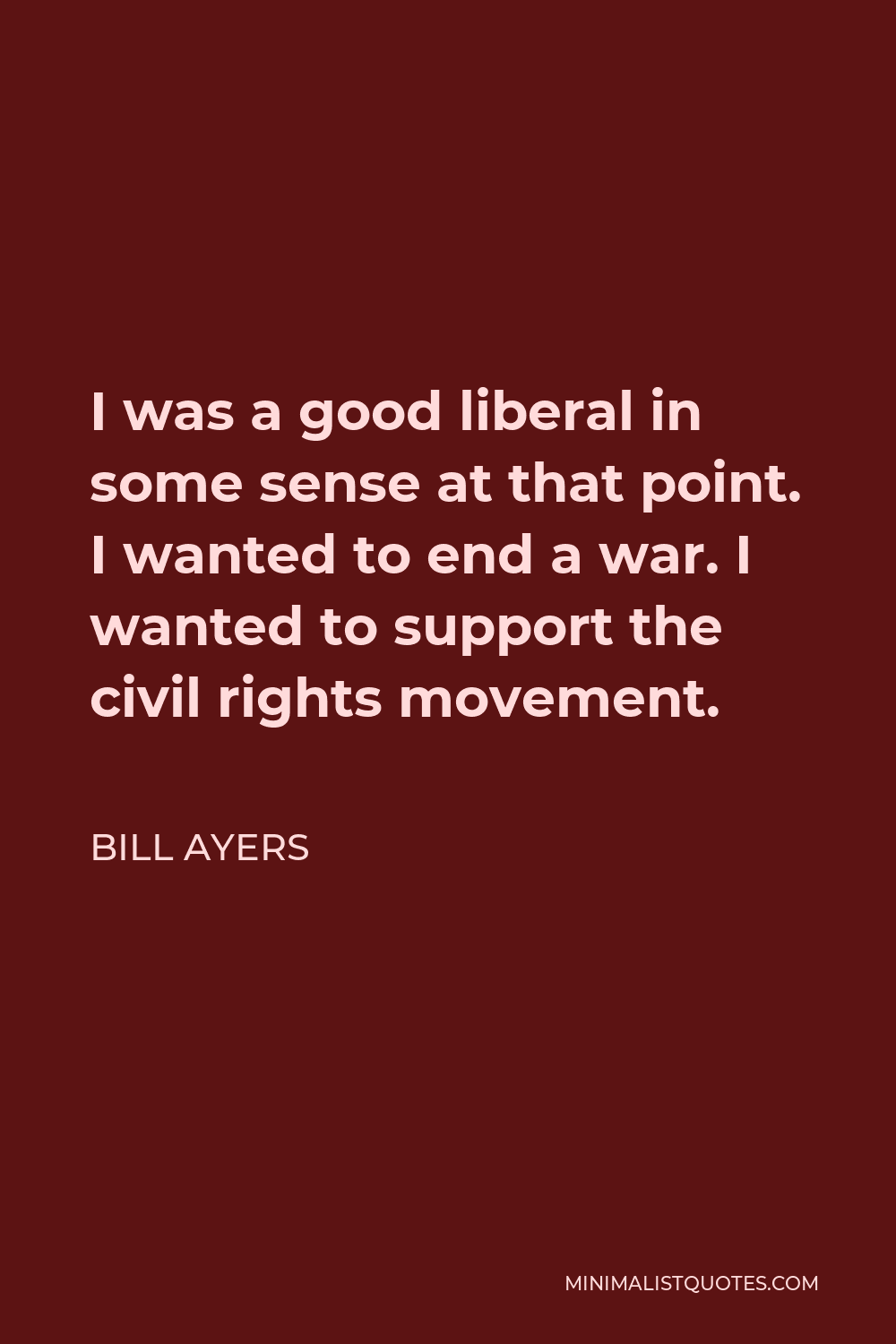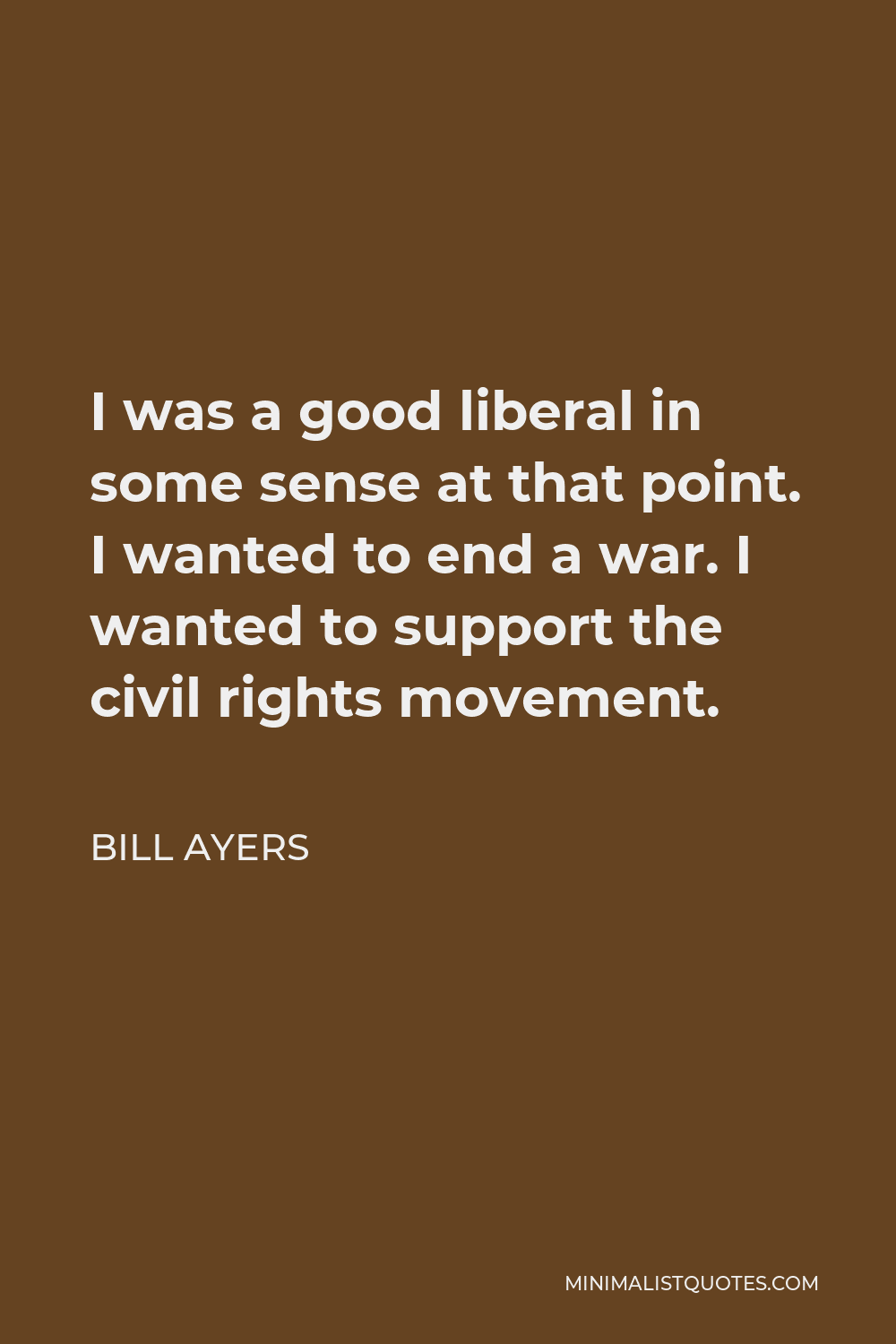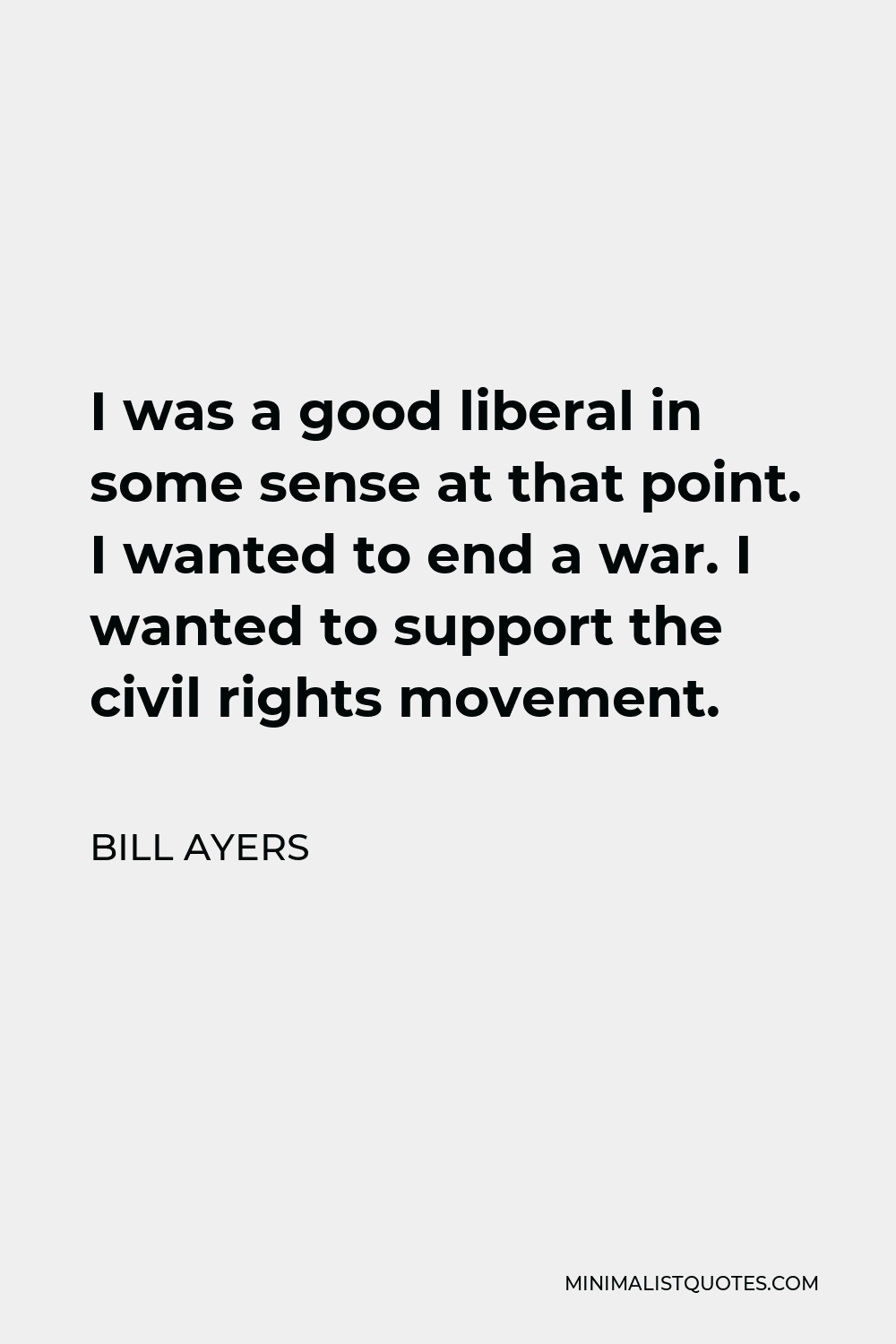I do think [Barack Obama’s] strategy for re-election is so misguided. He’s counting on the Republicans to self-destruct, and they might, you know, but they might not. So he might be a one-term president.
BILL AYERSI was a good liberal in some sense at that point. I wanted to end a war. I wanted to support the civil rights movement.
More Bill Ayers Quotes
-





![Bill Ayers Quote - I do think [Barack Obama’s] strategy for re-election is so misguided. He’s counting on the Republicans to self-destruct, and they might, you know, but they might not. So he might be a one-term president.](https://minimalistquotes.com/wp-content/uploads/2023/02/i-do-think-barack-obamas-strategy-for-re-election--683x1024.jpg)

-





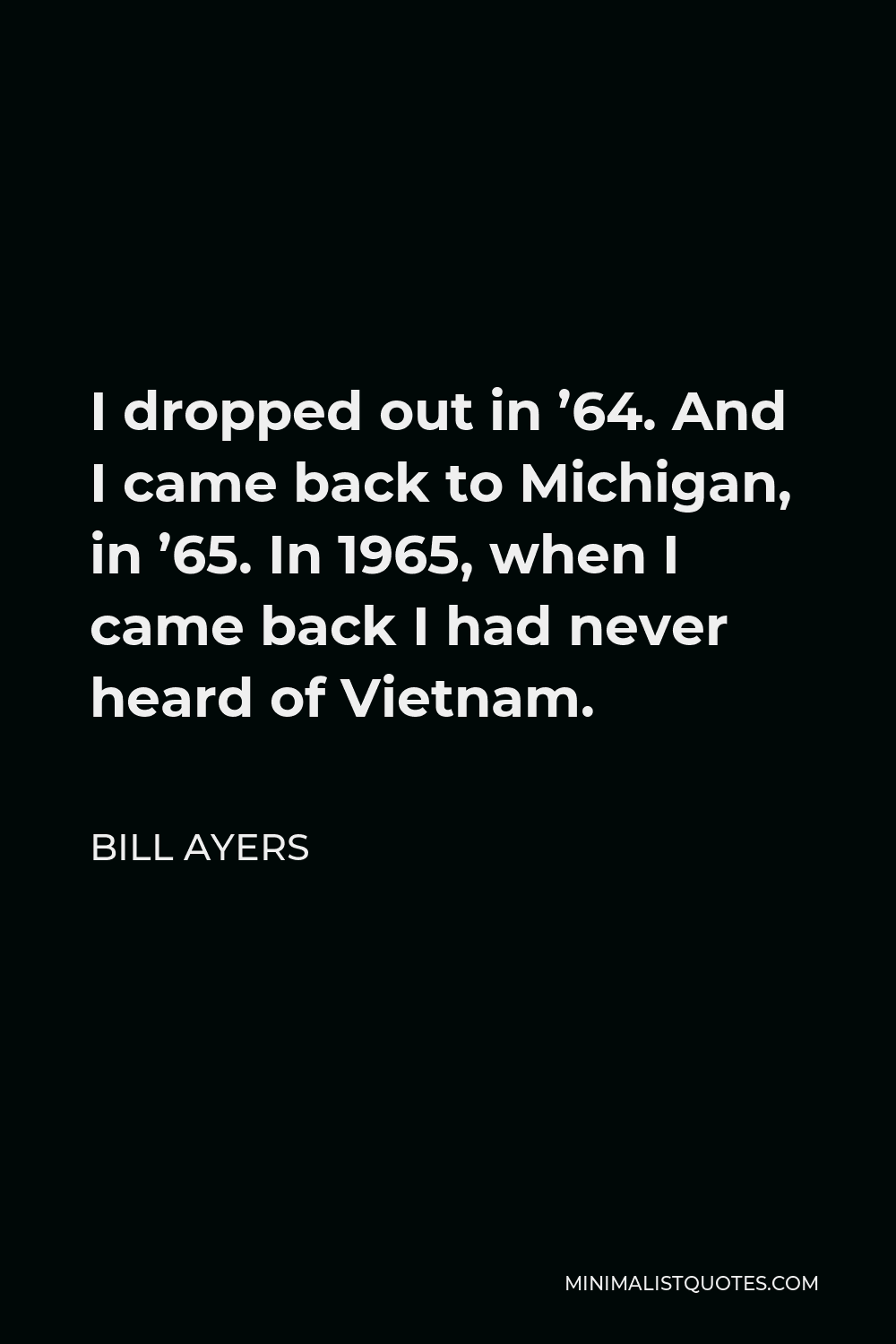
I dropped out in ’64. And I came back to Michigan, in ’65. In 1965, when I came back I had never heard of Vietnam.
BILL AYERS -





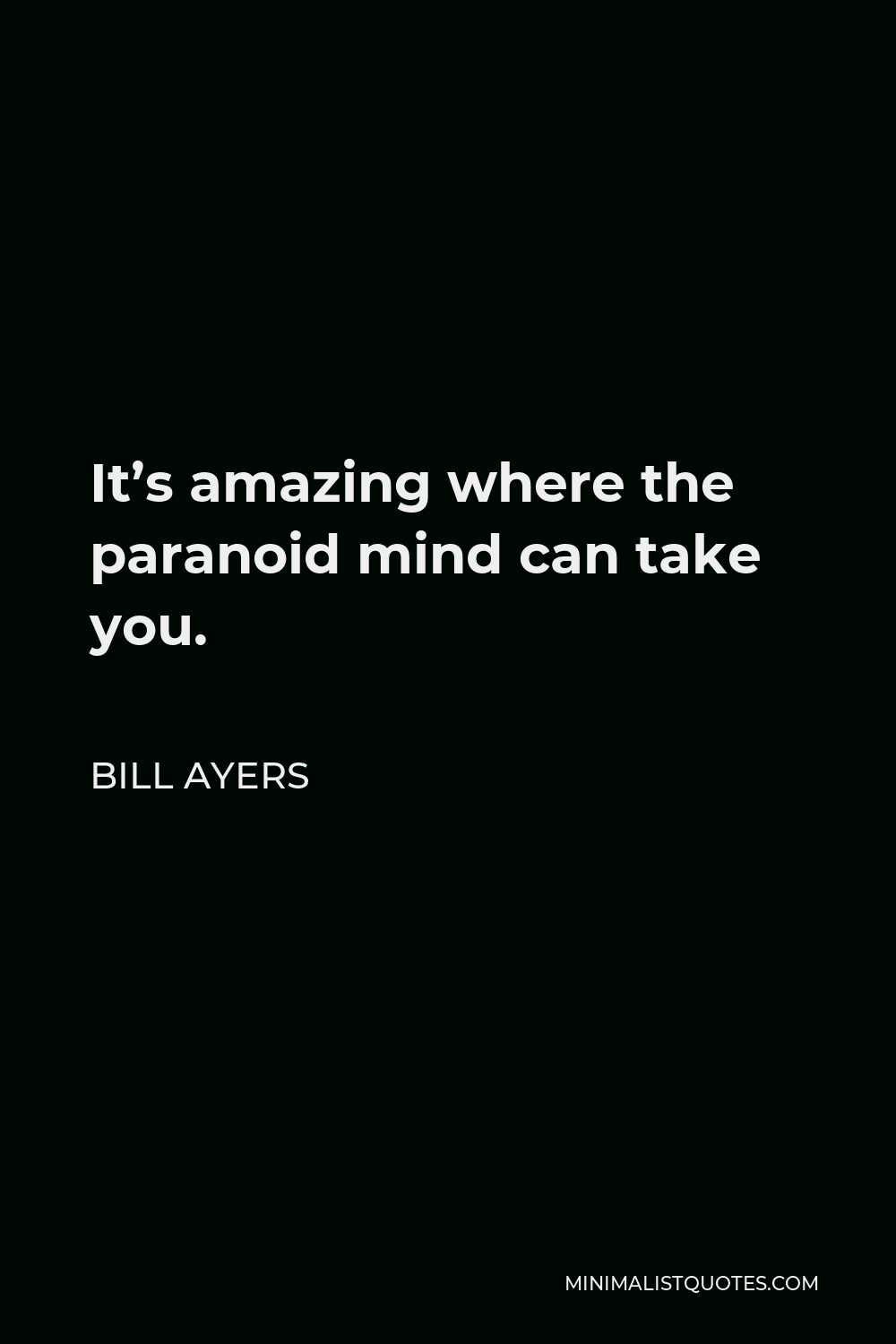
It’s amazing where the paranoid mind can take you.
BILL AYERS -





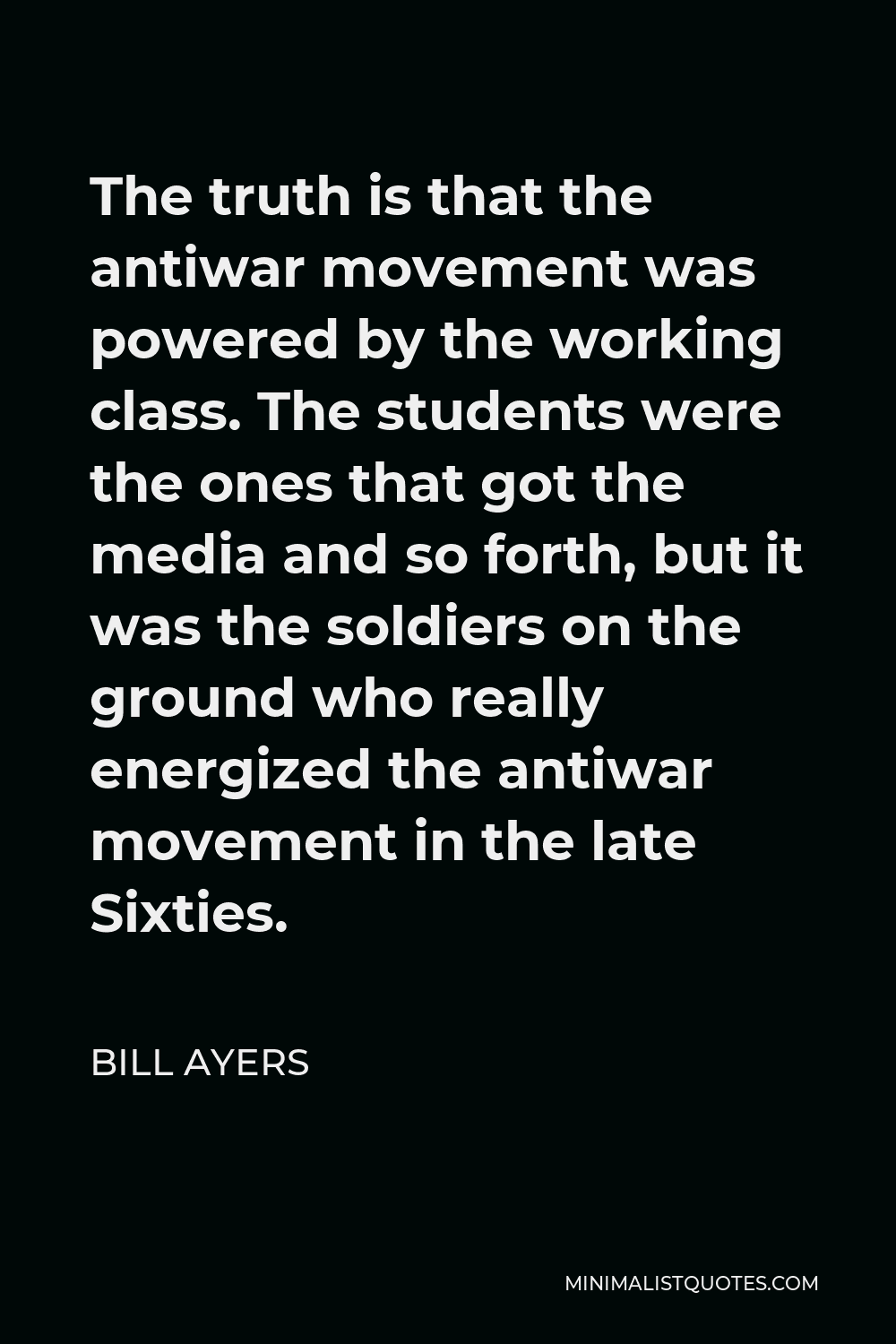
The truth is that the antiwar movement was powered by the working class. The students were the ones that got the media and so forth, but it was the soldiers on the ground who really energized the antiwar movement in the late Sixties.
BILL AYERS -





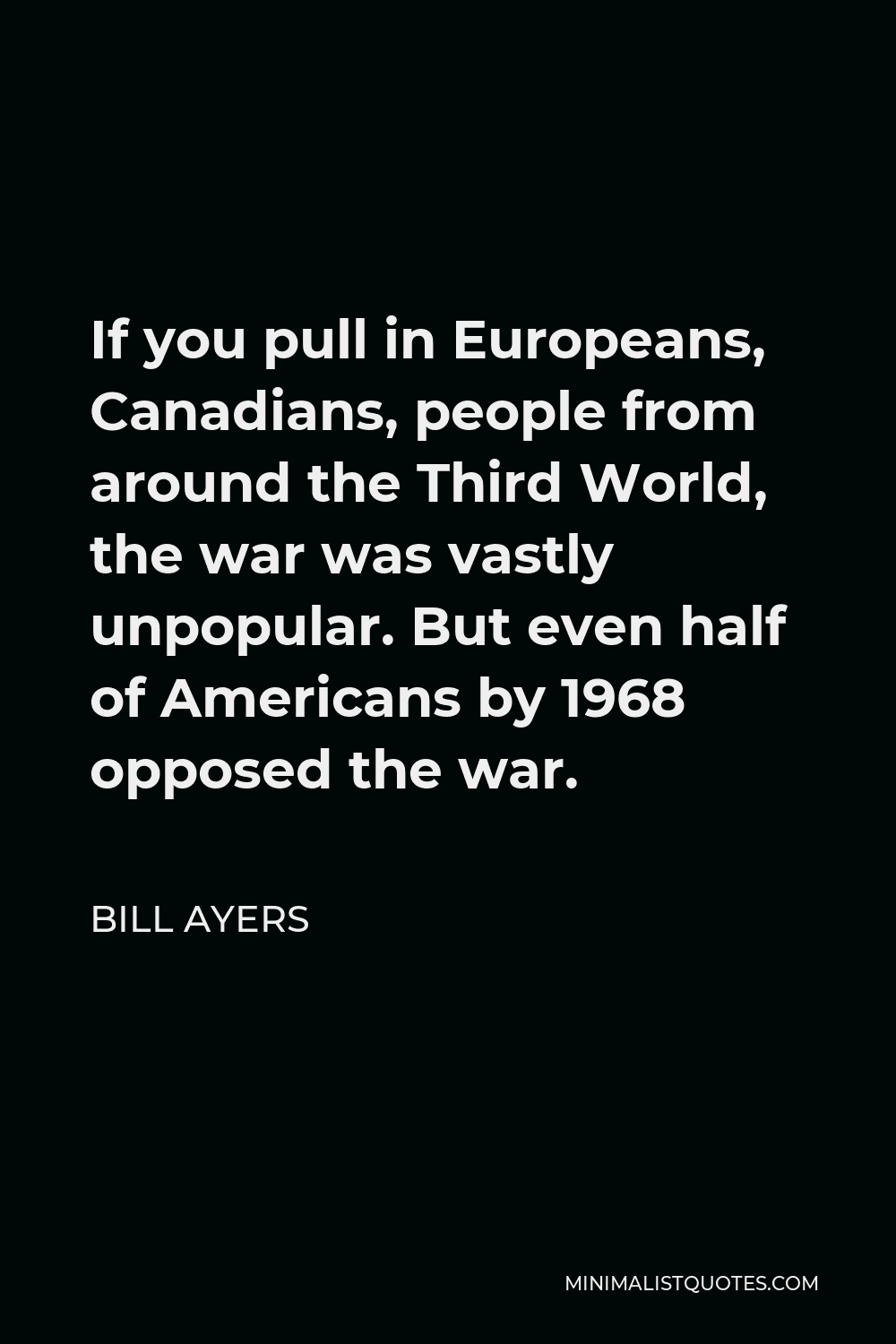
If you pull in Europeans, Canadians, people from around the Third World, the war was vastly unpopular. But even half of Americans by 1968 opposed the war.
BILL AYERS -





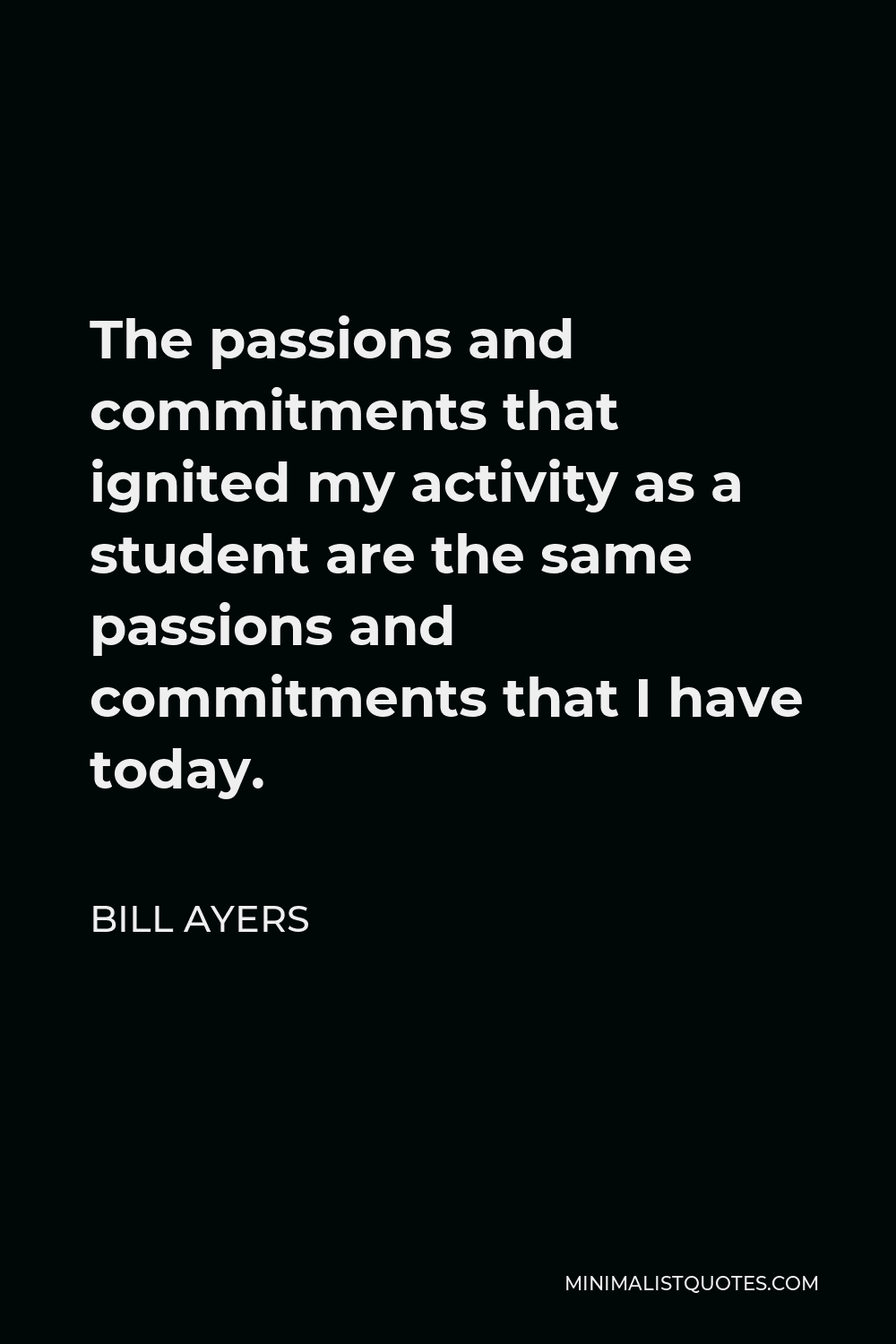
The passions and commitments that ignited my activity as a student are the same passions and commitments that I have today.
BILL AYERS -





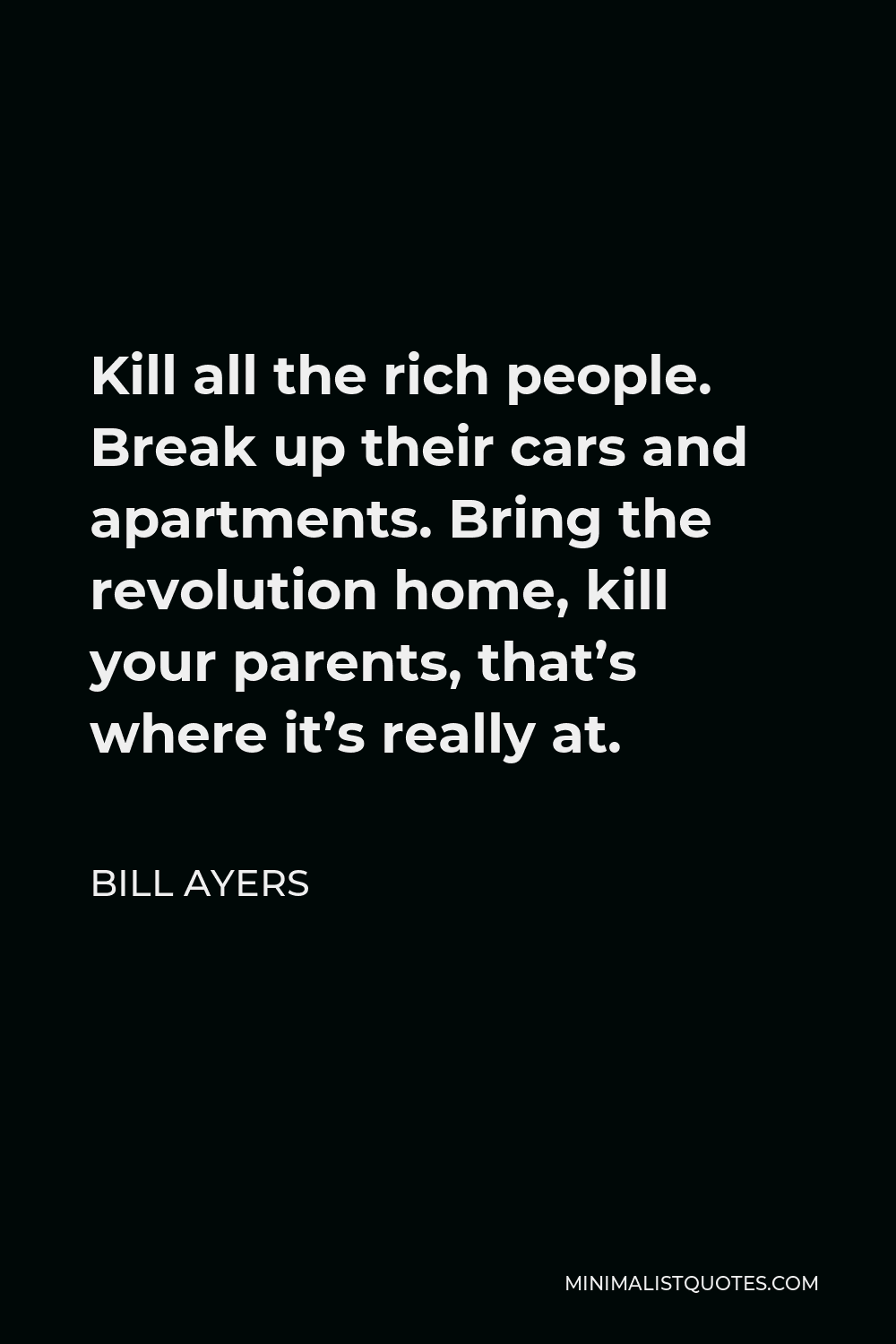
Kill all the rich people. Break up their cars and apartments. Bring the revolution home, kill your parents, that’s where it’s really at.
BILL AYERS -





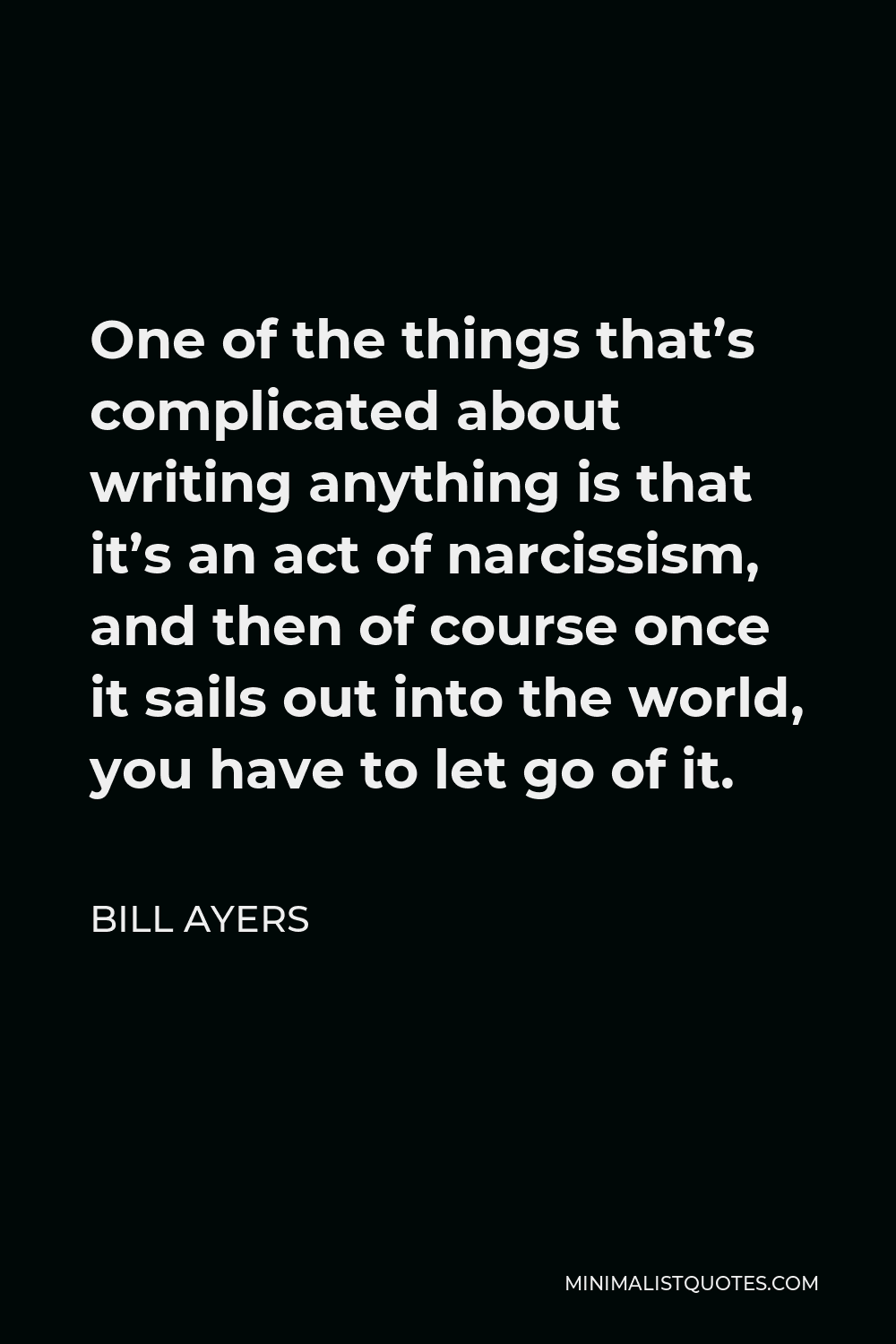
One of the things that’s complicated about writing anything is that it’s an act of narcissism, and then of course once it sails out into the world, you have to let go of it.
BILL AYERS -





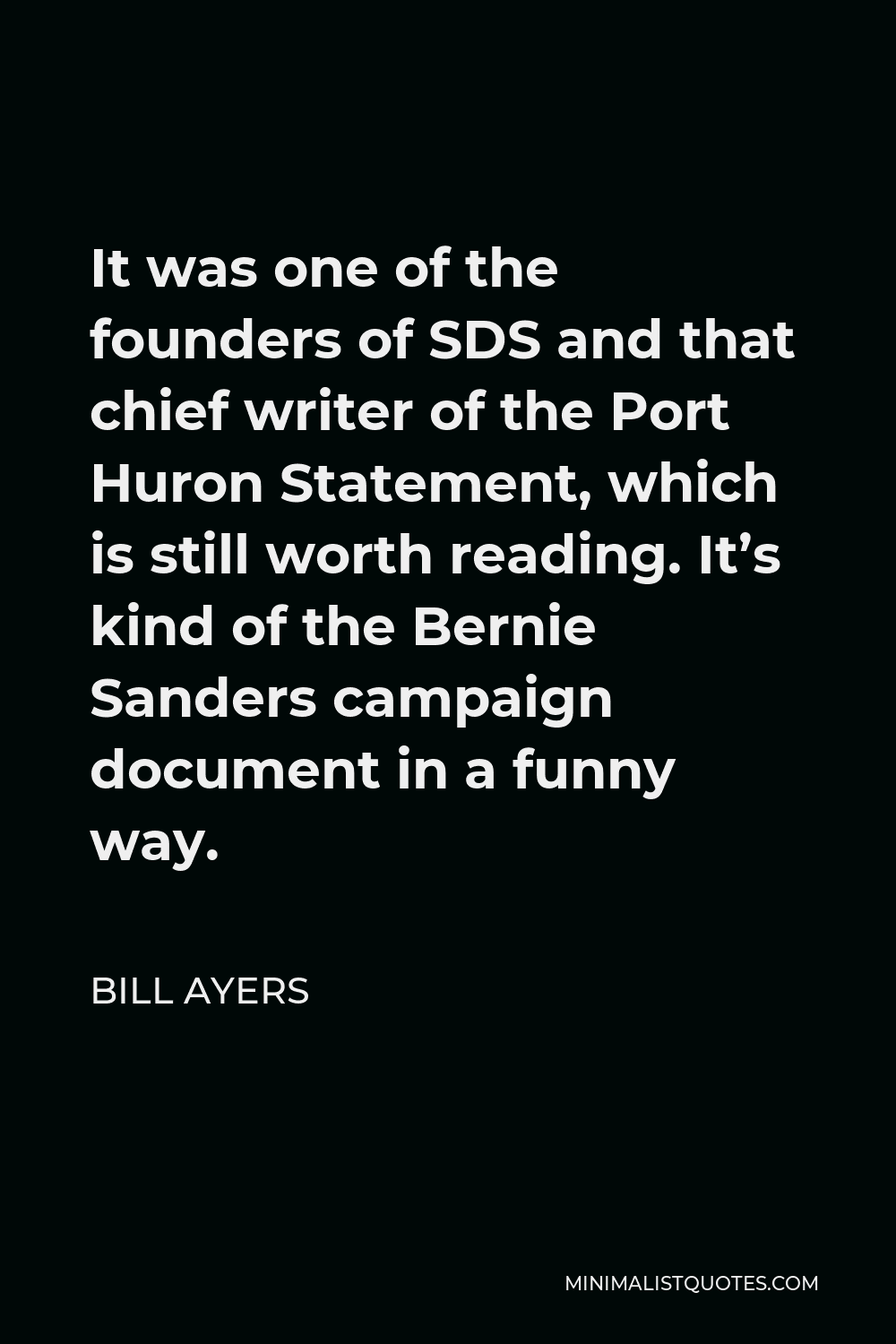
It was one of the founders of SDS and that chief writer of the Port Huron Statement, which is still worth reading. It’s kind of the Bernie Sanders campaign document in a funny way.
BILL AYERS -





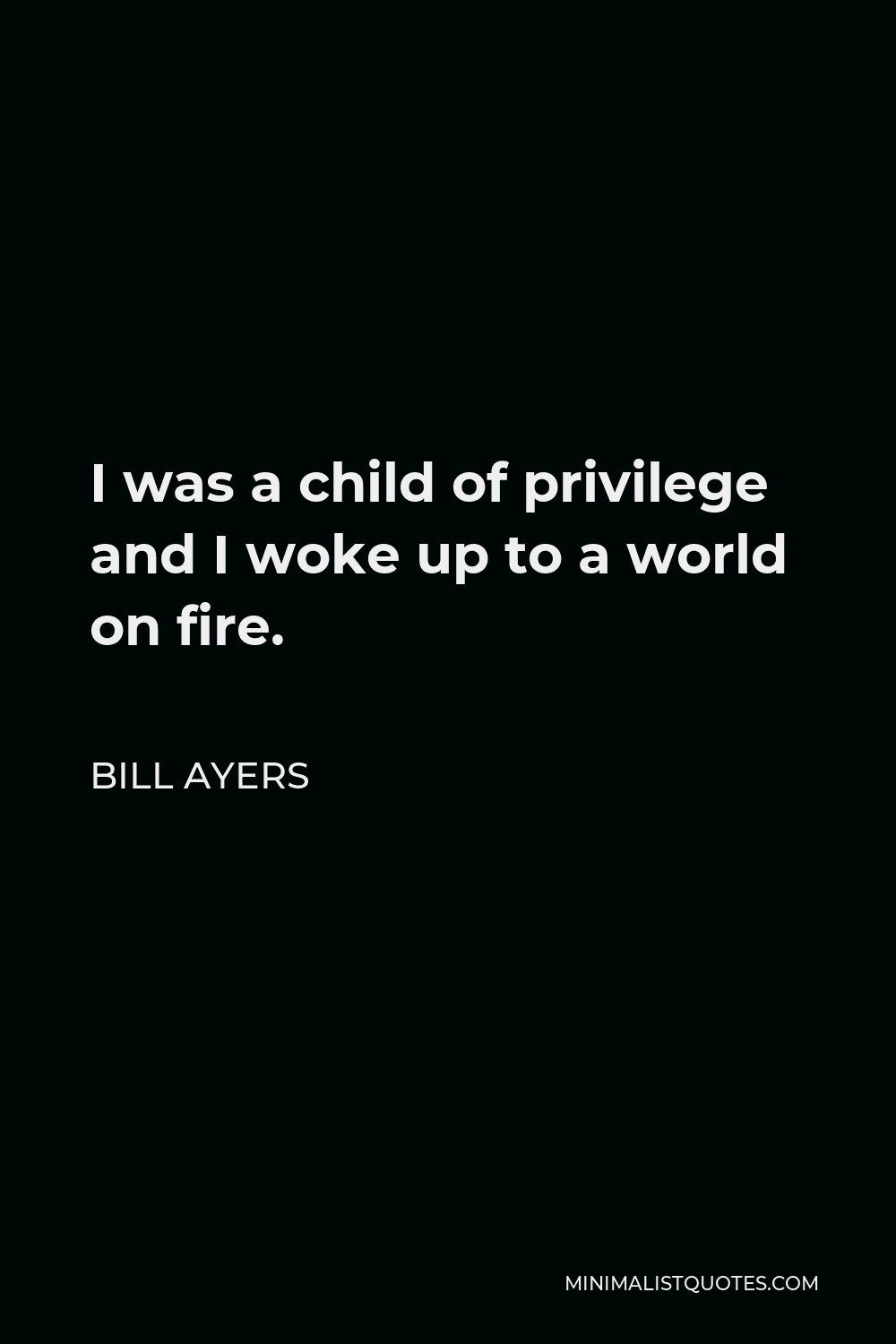
I was a child of privilege and I woke up to a world on fire.
BILL AYERS -






I think Bowe Bergdahl, if he deserted, is a hero – I think throughout history we should build monuments to the unknown deserters.
BILL AYERS -





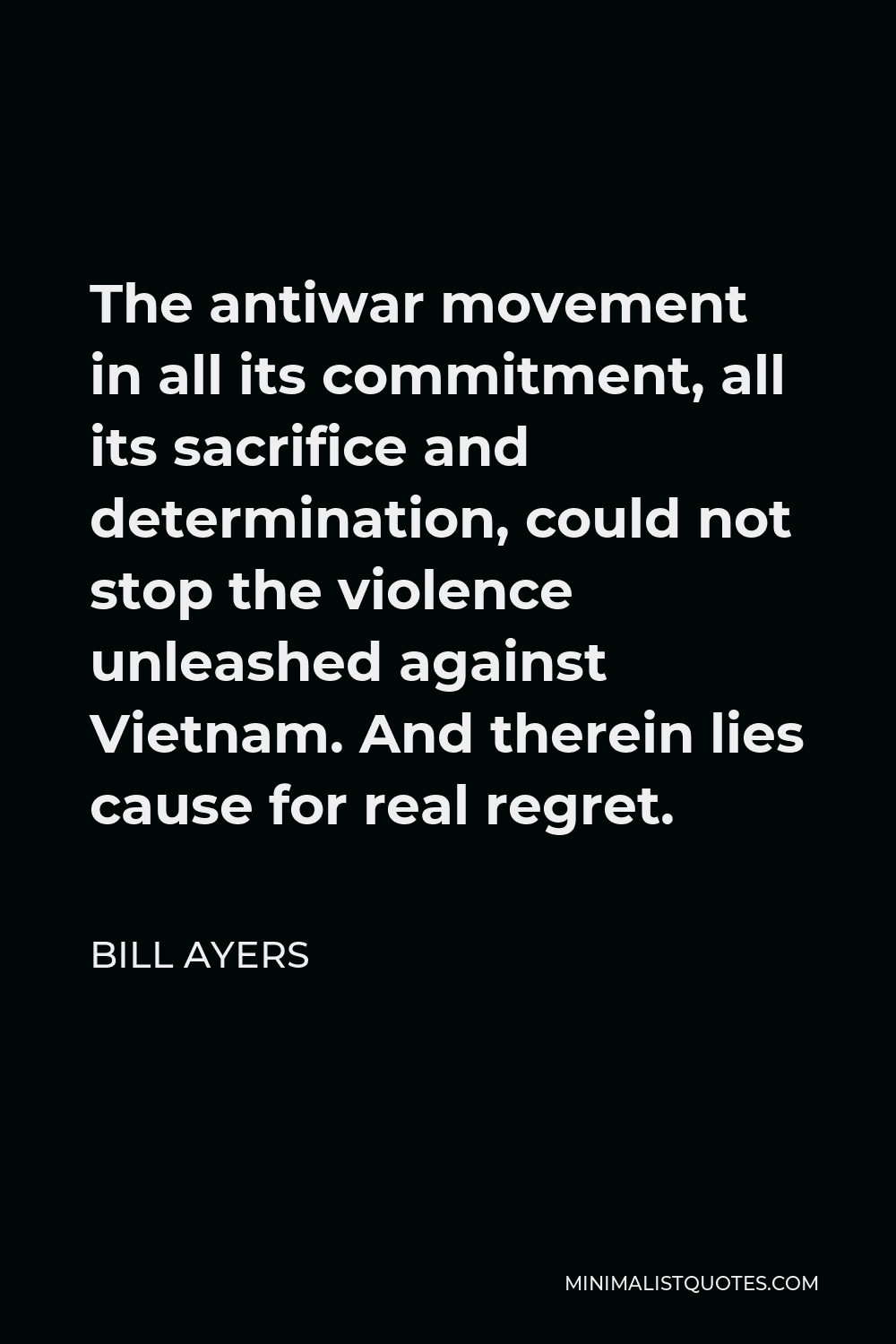
The antiwar movement in all its commitment, all its sacrifice and determination, could not stop the violence unleashed against Vietnam. And therein lies cause for real regret.
BILL AYERS -





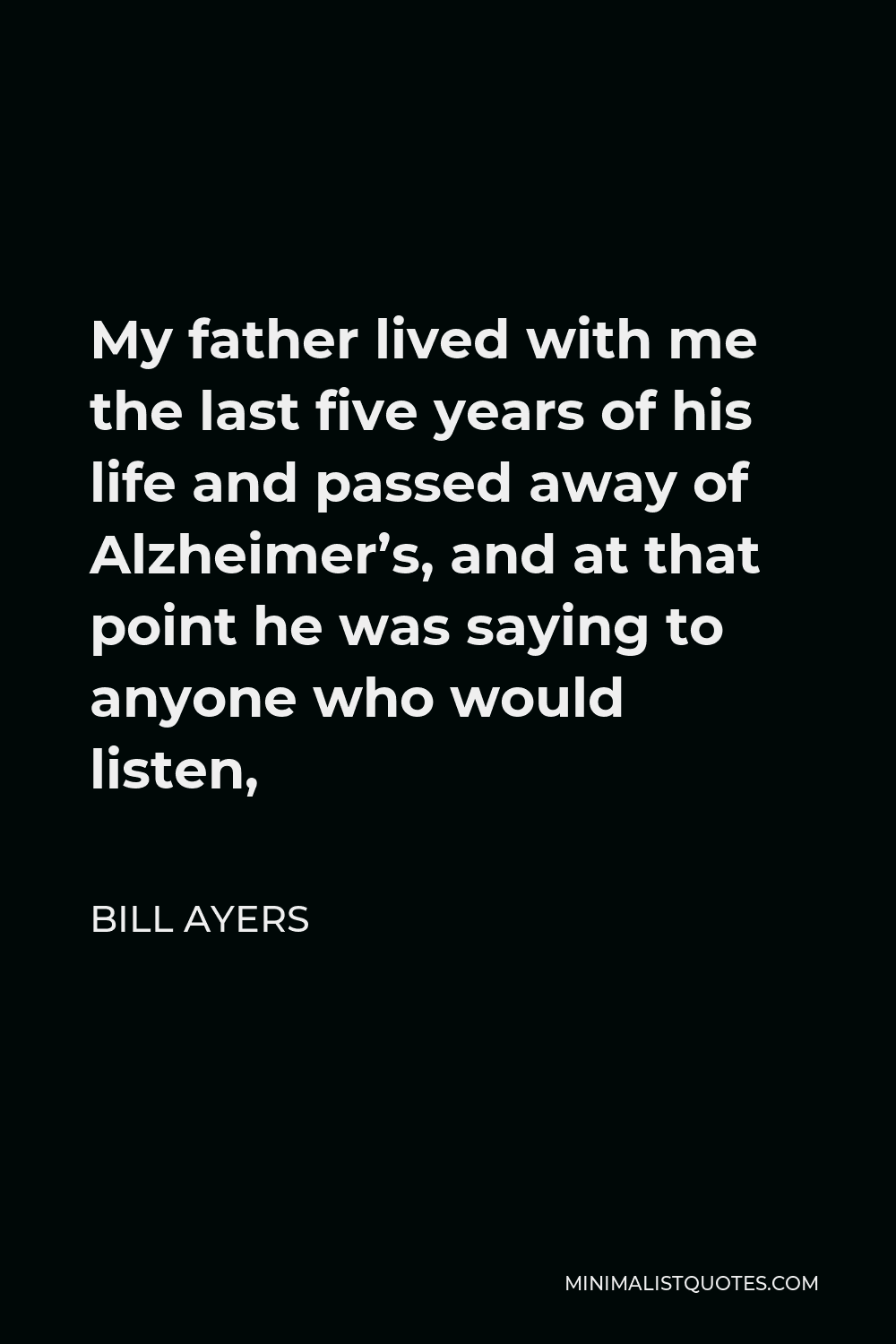
My father lived with me the last five years of his life and passed away of Alzheimer’s, and at that point he was saying to anyone who would listen,
BILL AYERS -





![Bill Ayers Quote - His [Martin Luther King] last book, Where Do We Go From Here: Chaos or Community, is a direct reference to angles, barbarism or socialism.](https://minimalistquotes.com/images/his-martin-luther-king-last-book-where-do-we-go-fr.jpg)
His [Martin Luther King] last book, Where Do We Go From Here: Chaos or Community, is a direct reference to angles, barbarism or socialism.
BILL AYERS -





![Bill Ayers Quote - Even there, [Barack] Obama’s generals, his Pentagon, they’re telling him what to do. And the force for gay rights is inevitable. And you can say Obama will help us, and maybe he will, but only if we have something on the ground that will make him help us.](https://minimalistquotes.com/images/even-there-barack-obamas-generals-his-pentagon-the.jpg)
Even there, [Barack] Obama’s generals, his Pentagon, they’re telling him what to do. And the force for gay rights is inevitable. And you can say Obama will help us, and maybe he will, but only if we have something on the ground that will make him help us.
BILL AYERS -





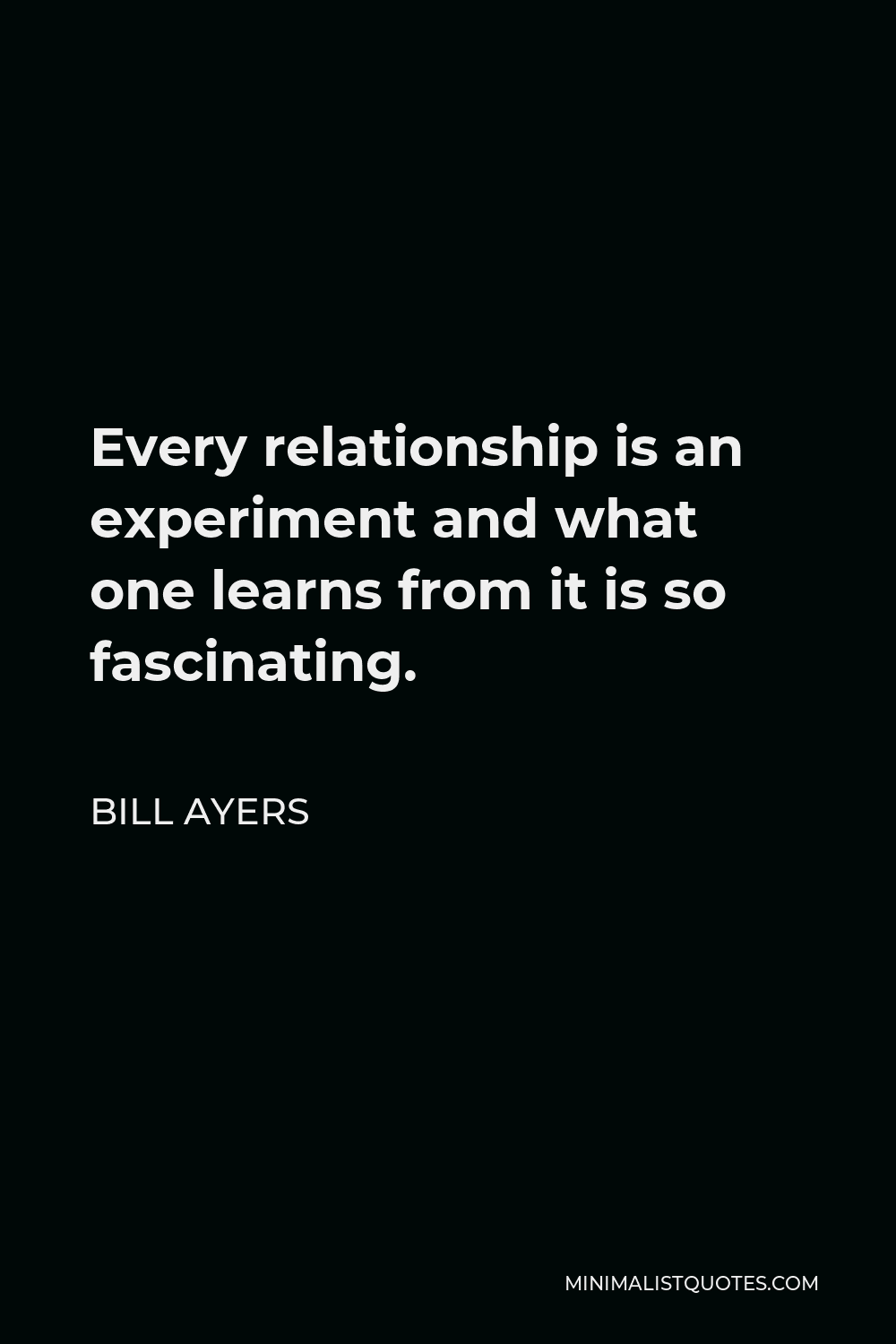
Every relationship is an experiment and what one learns from it is so fascinating.
BILL AYERS -





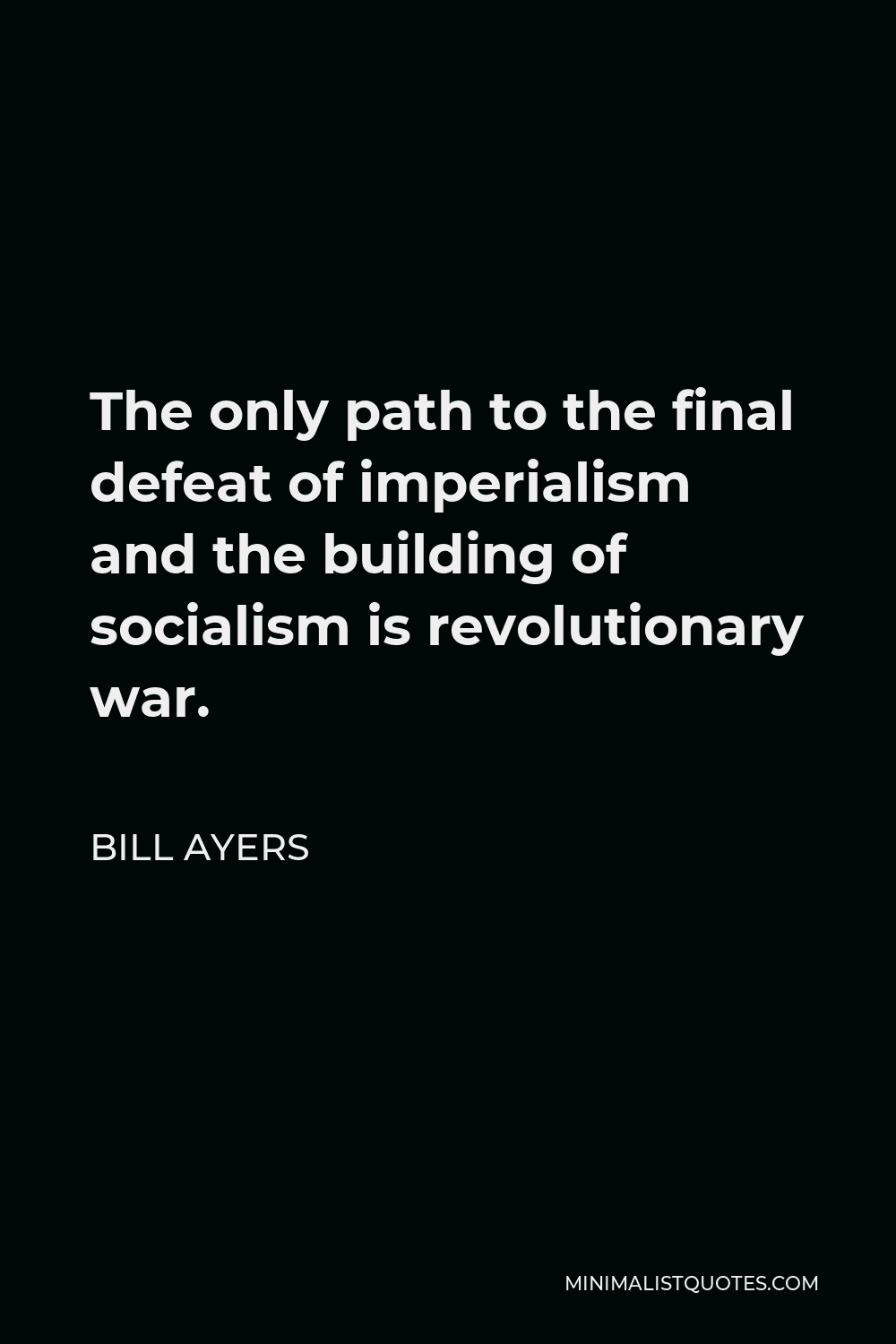
The only path to the final defeat of imperialism and the building of socialism is revolutionary war.
BILL AYERS -





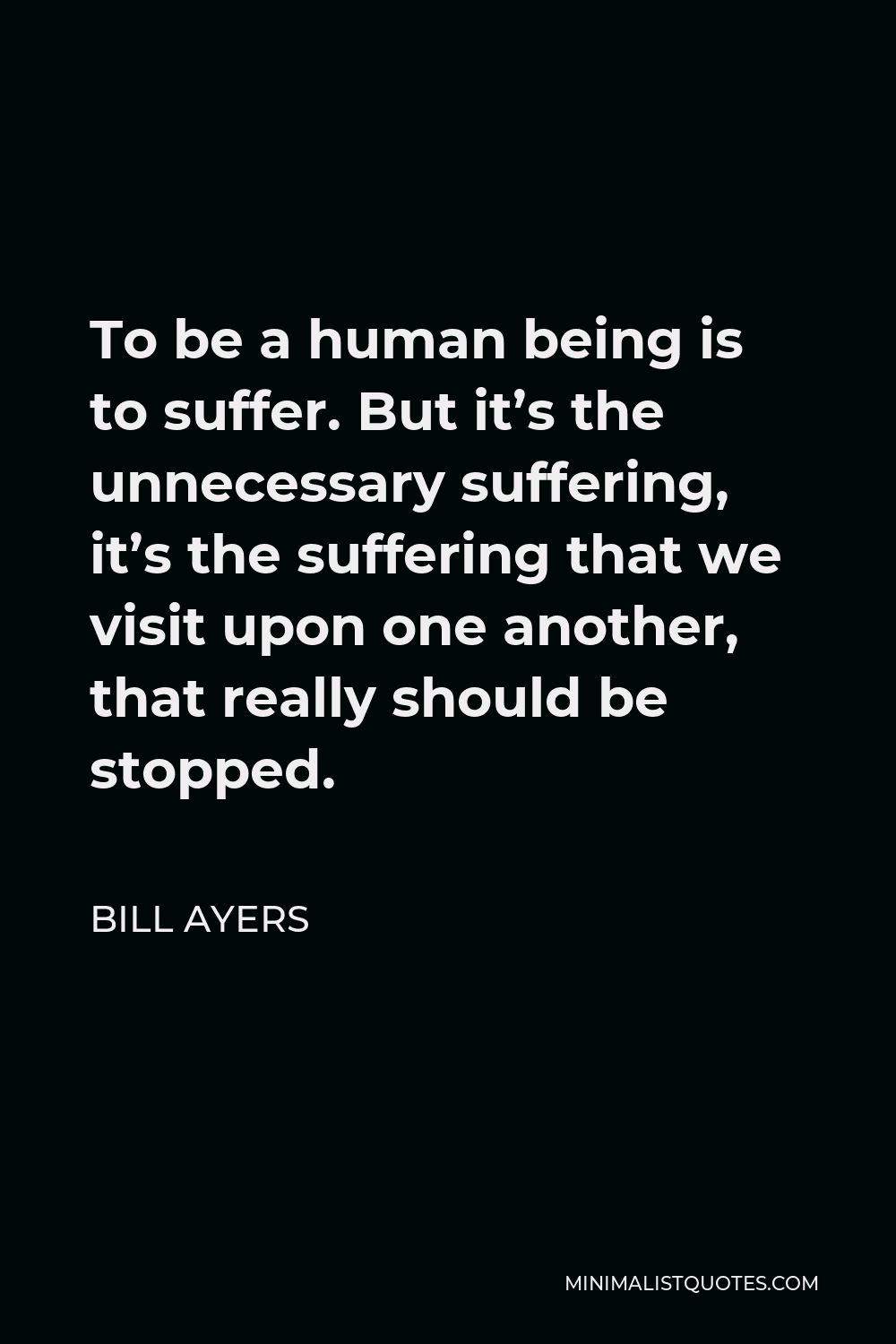
To be a human being is to suffer. But it’s the unnecessary suffering, it’s the suffering that we visit upon one another, that really should be stopped.
BILL AYERS -





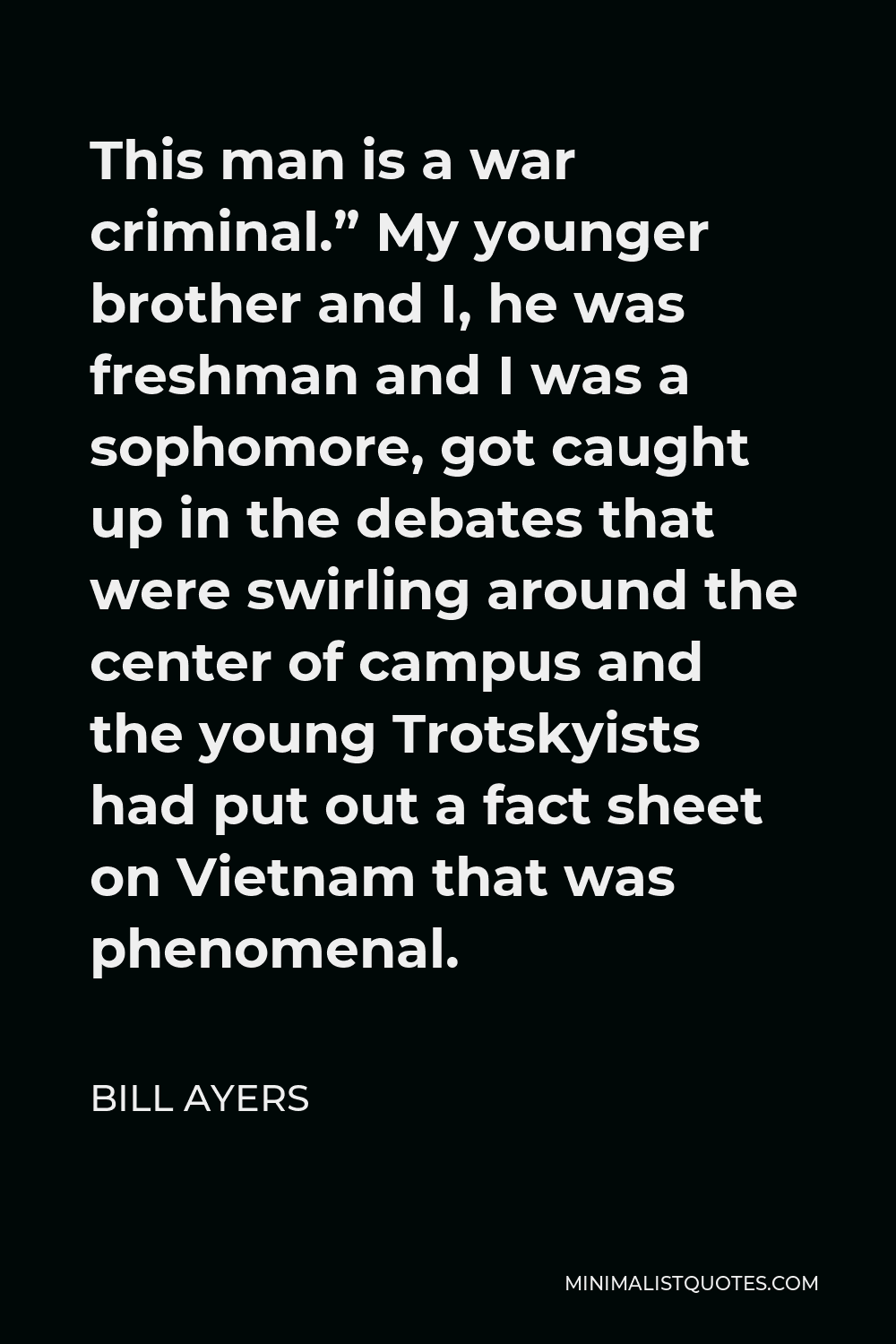
This man is a war criminal.” My younger brother and I, he was freshman and I was a sophomore, got caught up in the debates that were swirling around the center of campus and the young Trotskyists had put out a fact sheet on Vietnam that was phenomenal.
BILL AYERS -





![Bill Ayers Quote - When [my dad] was at the University of Michigan, my mom was a social-worker. As he rose, he voted for [Adlai] Stevenson initially. Then he voted for [Dwight] Eisenhower. Then he kept voting Republican until he voted for Barack Obama.](https://minimalistquotes.com/images/when-my-dad-was-at-the-university-of-michigan-my-m.jpg)
When [my dad] was at the University of Michigan, my mom was a social-worker. As he rose, he voted for [Adlai] Stevenson initially. Then he voted for [Dwight] Eisenhower. Then he kept voting Republican until he voted for Barack Obama.
BILL AYERS -





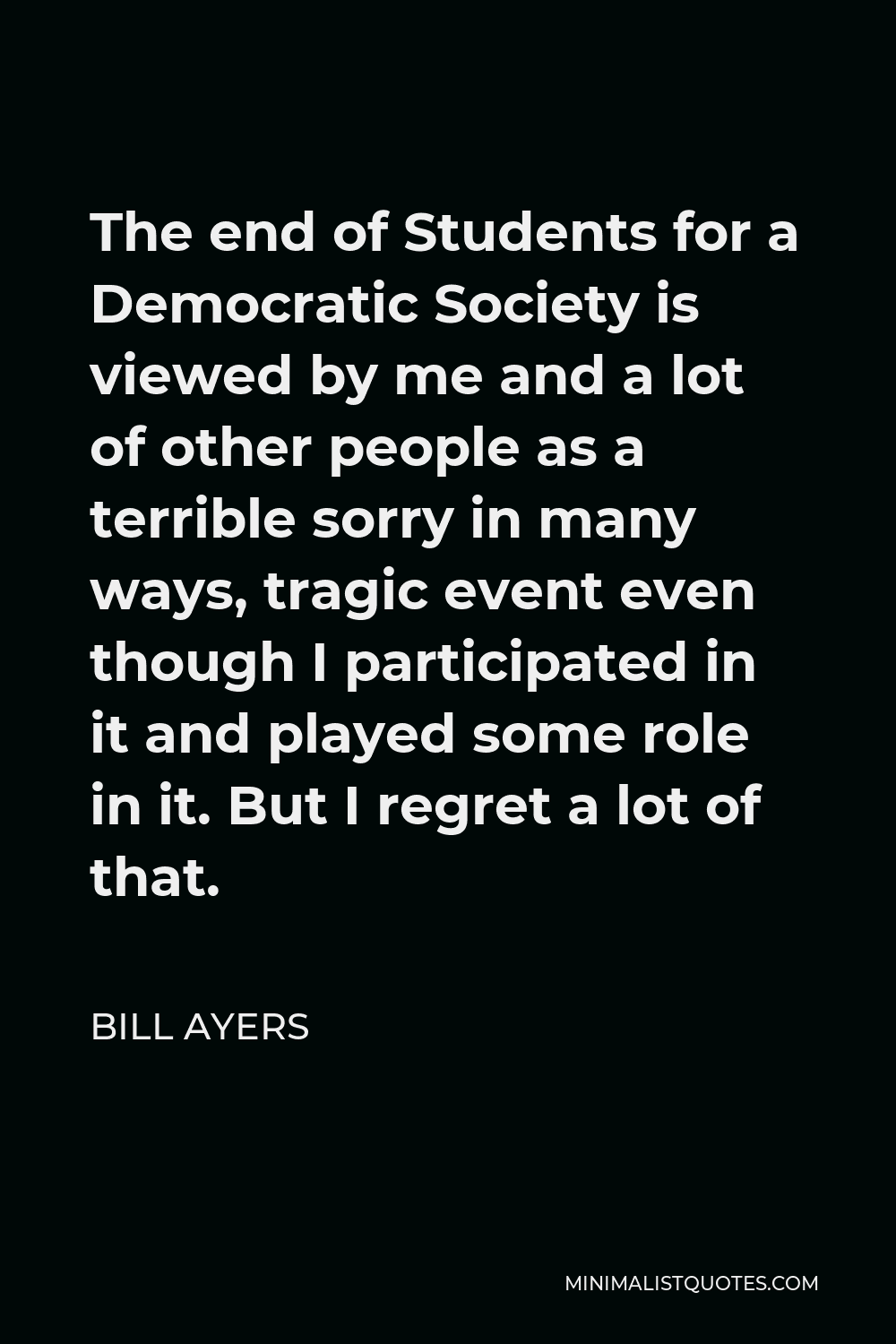
The end of Students for a Democratic Society is viewed by me and a lot of other people as a terrible sorry in many ways, tragic event even though I participated in it and played some role in it. But I regret a lot of that.
BILL AYERS -





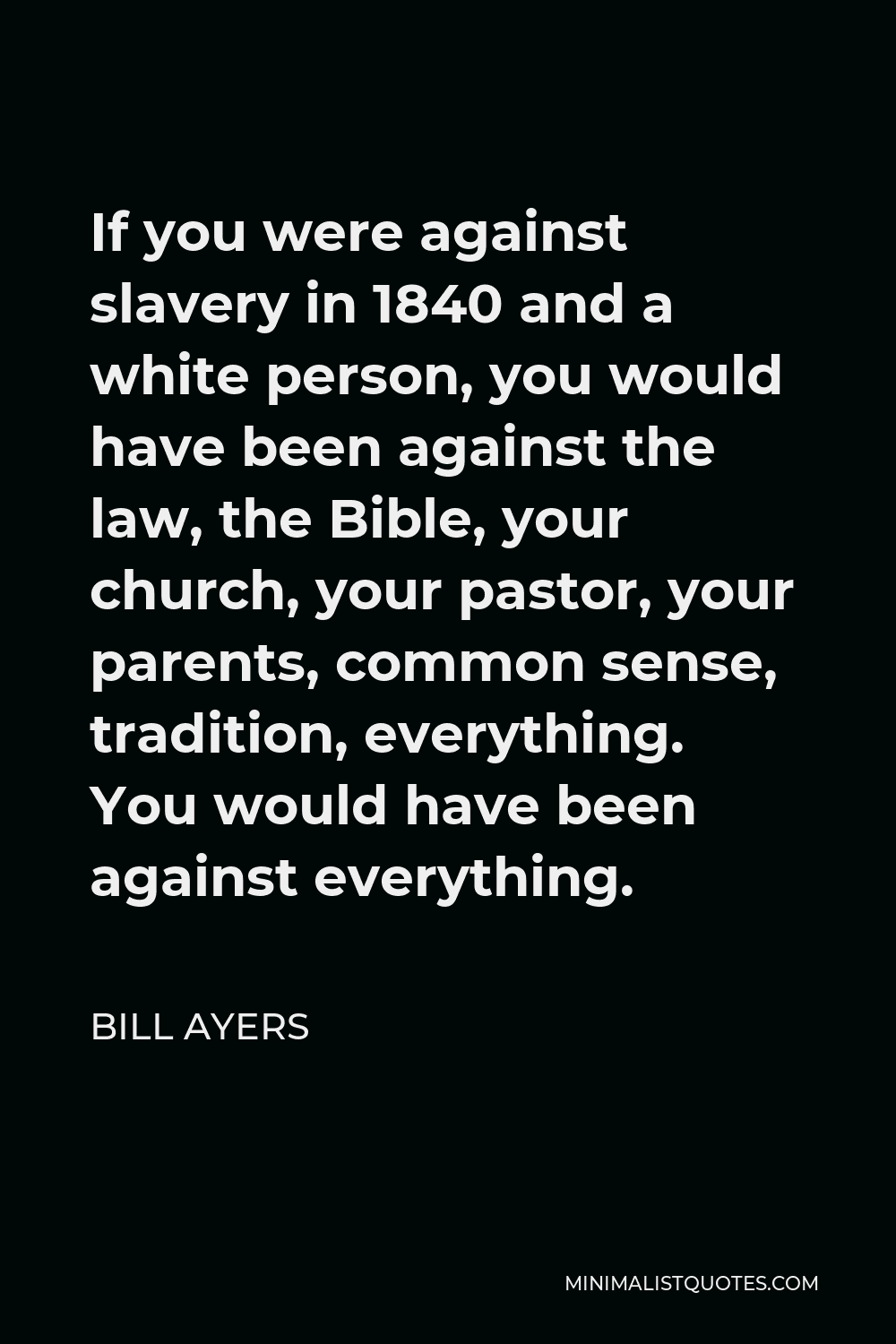
If you were against slavery in 1840 and a white person, you would have been against the law, the Bible, your church, your pastor, your parents, common sense, tradition, everything. You would have been against everything.
BILL AYERS -





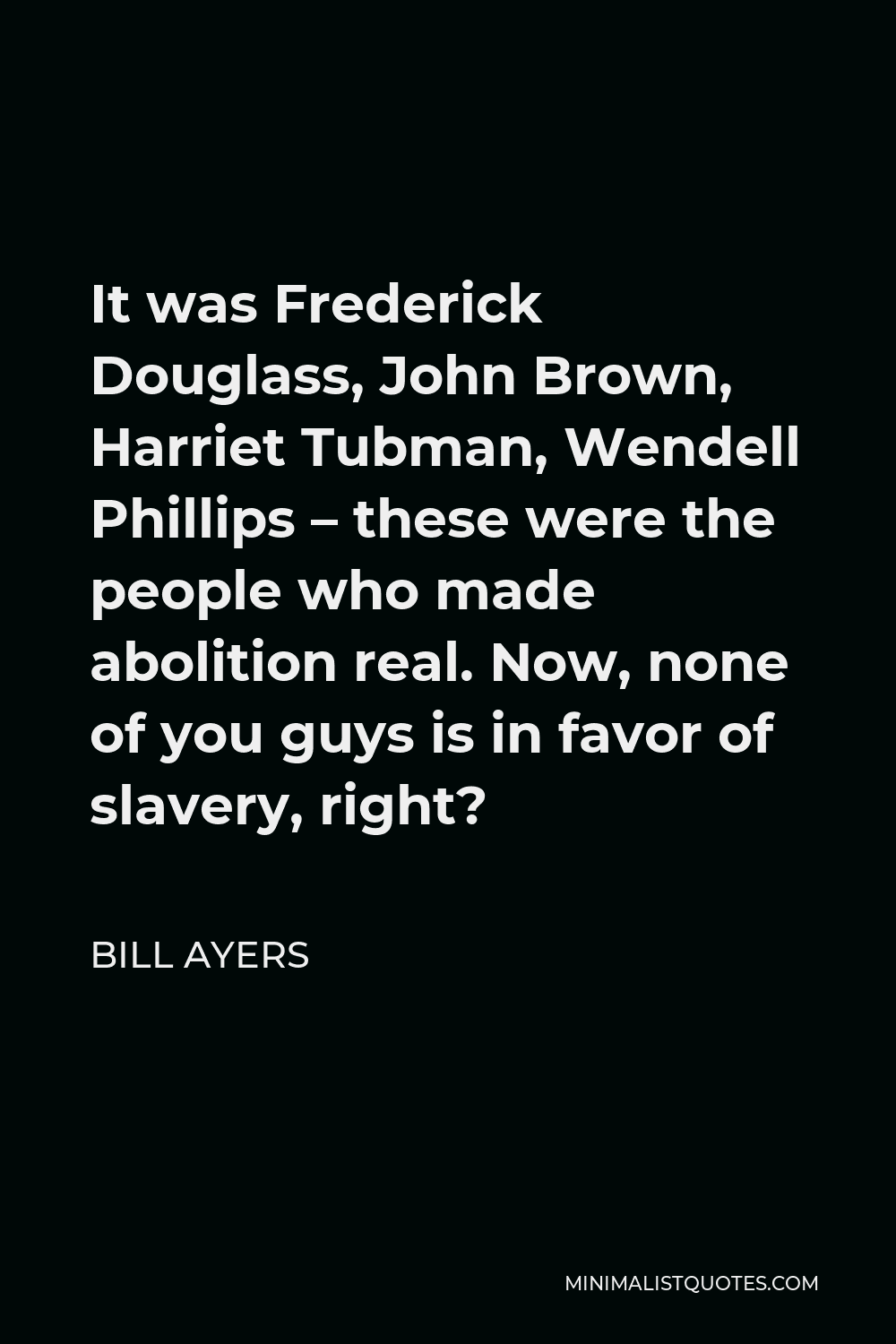
It was Frederick Douglass, John Brown, Harriet Tubman, Wendell Phillips – these were the people who made abolition real. Now, none of you guys is in favor of slavery, right?
BILL AYERS -





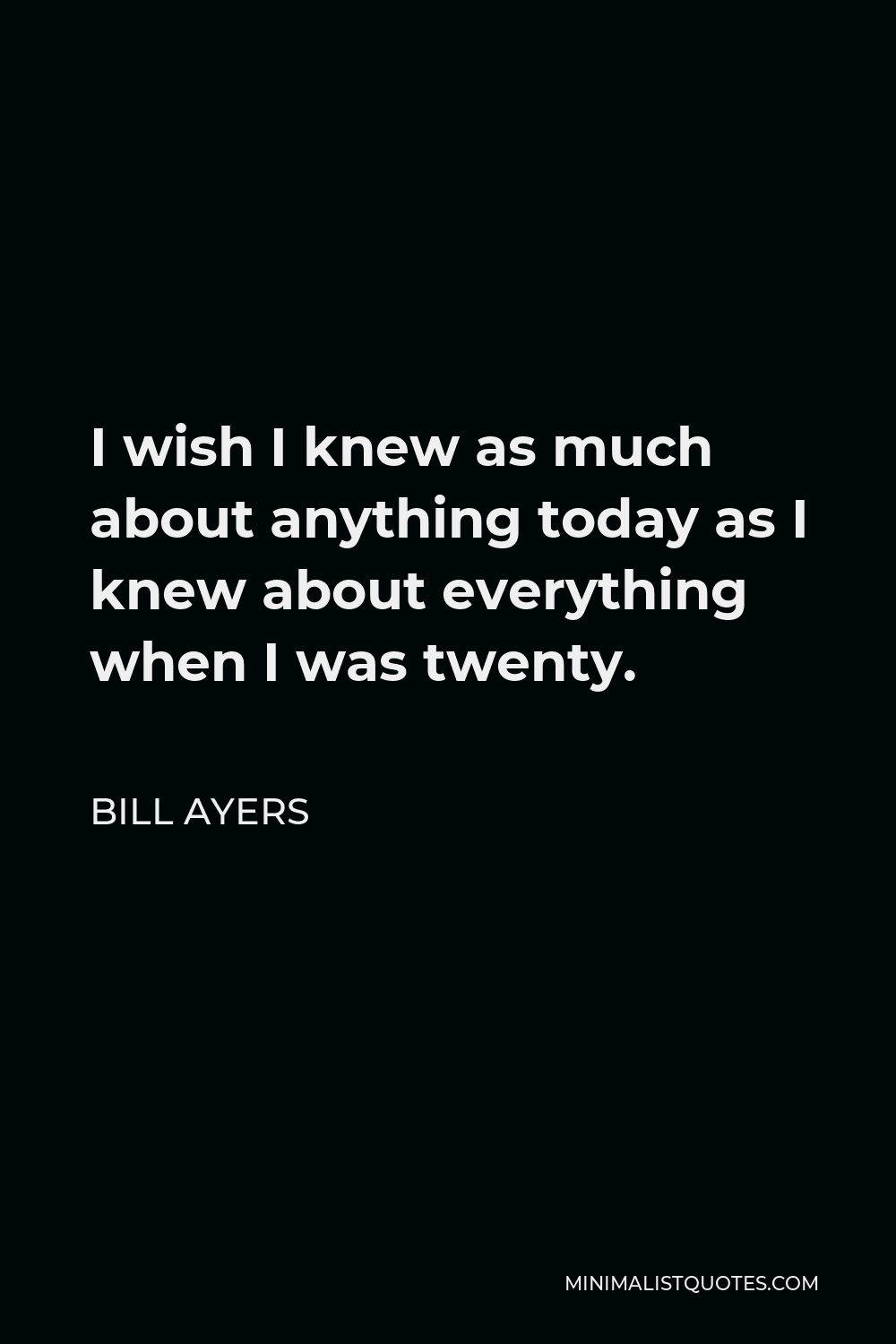
I wish I knew as much about anything today as I knew about everything when I was twenty.
BILL AYERS -





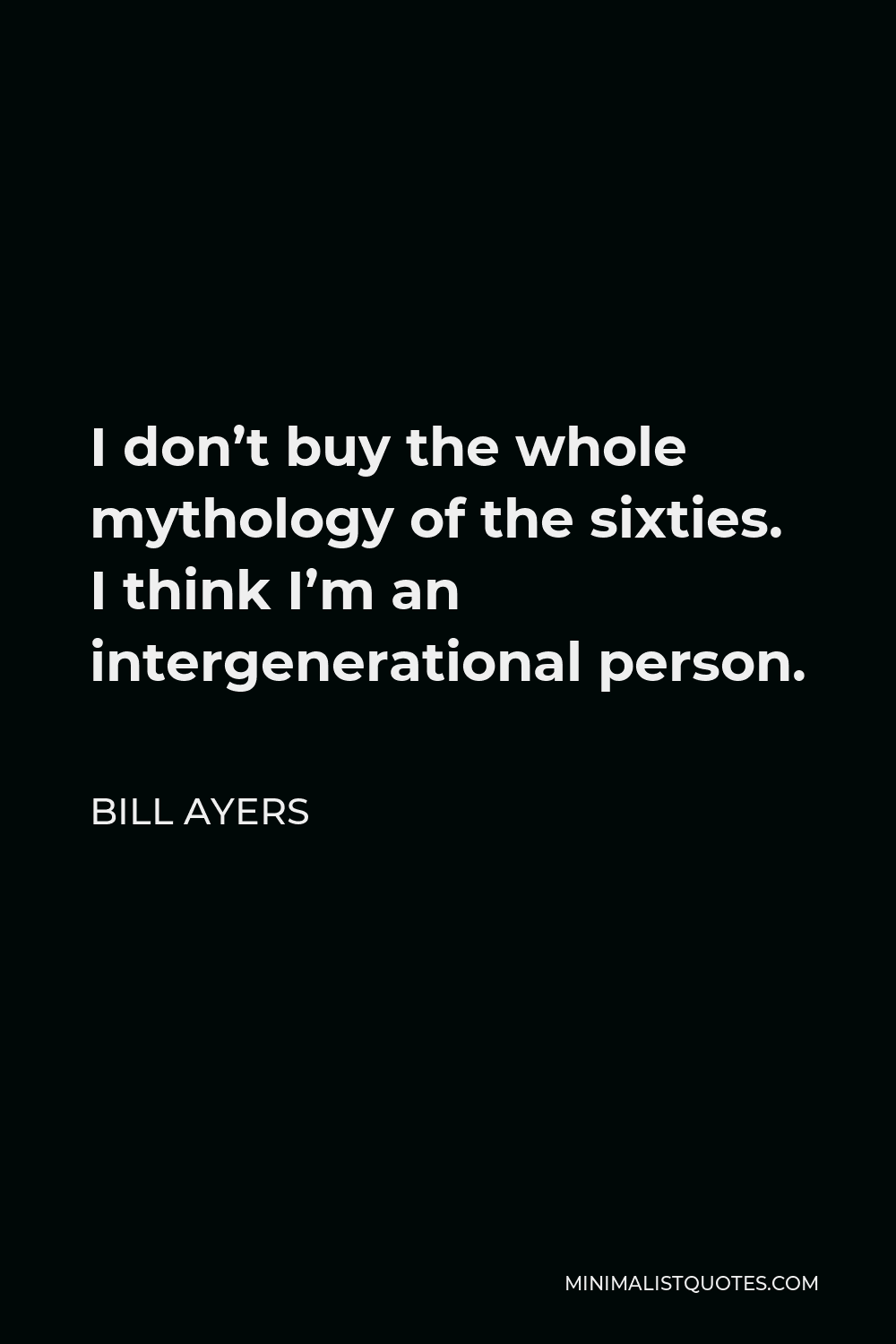
I don’t buy the whole mythology of the sixties. I think I’m an intergenerational person.
BILL AYERS -





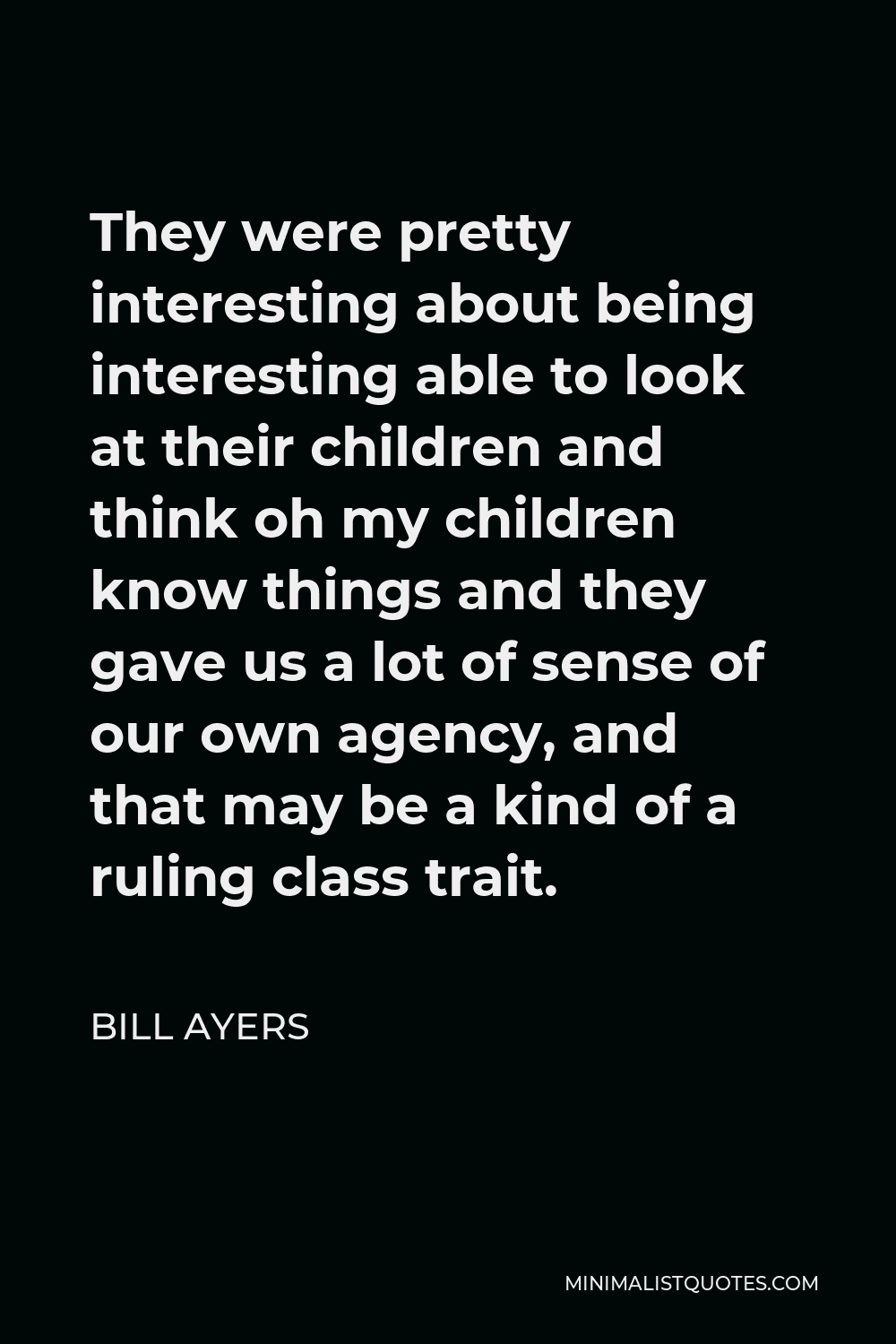
They were pretty interesting about being interesting able to look at their children and think oh my children know things and they gave us a lot of sense of our own agency, and that may be a kind of a ruling class trait.
BILL AYERS -





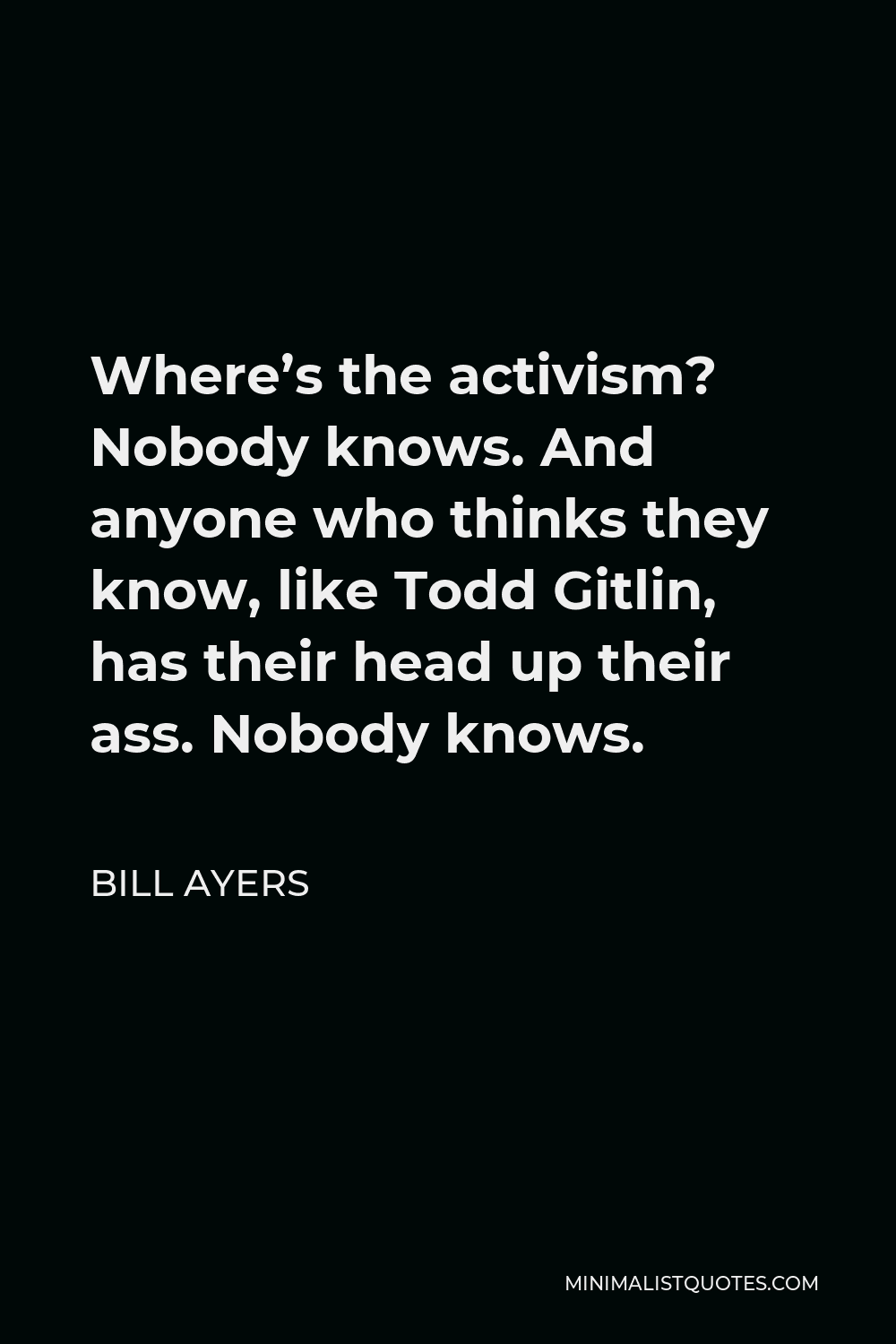
Where’s the activism? Nobody knows. And anyone who thinks they know, like Todd Gitlin, has their head up their ass. Nobody knows.
BILL AYERS
